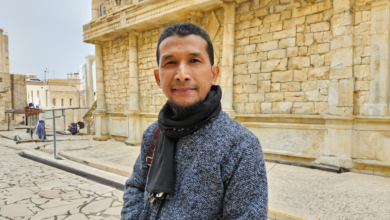
DDHK.ORG - The practice of praying from the time of our ancestors to the present day generally uses the standard of prayer described by the Shafi'i school of thought. This is because the majority of the Indonesian population is generally the Shafi'i school of thought. The scholars who spread Islam in the archipelago, of course, were also scholars of the Shafi'i school of thought. So automatically the practice of prayer is based on the fiqh of the Shafi'i school of thought.
Through this series of articles, DDHK News describes the nature of the prayer of the Prophet Muhammad based on the Shafi'i school, as written by Muhammad Ajib, Lc., MA. in his book "Sahih Evidence of the Prophet's Prayer Ala Madzhab Syafi'iy".
***
In this last chapter the author will mention several things that are included in the sunnah of hai'at. Sunnah haiat is a sunnah which if left behind due to forgetfulness or intentionally left out then the prayer is still valid and does not need to prostrate sahwi.
Saying intentions
When someone wants to pray, it is permissible to recite the intention of praying before saying takbiratul ihram. As for the Shafi'i school of thought, the matter of reciting this intention is only sunnah and not mandatory.
That is, if you don't recite your intention, that's okay too. Because the most important thing and must be done is the intention in the heart when takbiratul ihram.
Saying the intention is usually by using an editorial such as "Usholli Fardhosh-Shubhi Rak'ataini Mustaqbilal Qiblati Ada'an Makmuman Lillahi Ta'ala" (example for saying the intention of Fajr prayer as a congregation).
In the matter of reciting intentions, the Shafi'i school uses a valid argument narrated by Imam Bukhari and Imam Muslim: "From the friend of Umar bin Al-Khattab Radhiyallahu 'Anhu, the Messenger of Allah said: Verily every deed depends on the intention. And everyone gets what he intended. Whoever emigrates for Allah and His Messenger, then his emigration is for Allah and His Messenger. And whoever emigrates for the sake of the world or the woman he wants to marry, then his emigration is only for that. (Hadith narrated by Bukhari & Muslim)
Wajhul istidlalnya is in this hadith the Prophet did not mention whether the intention should be recited or disirrkan in the heart. That is, both can be done.
And also qiyas to the intention of the pilgrimage performed by the Prophet . In an authentic hadith narrated by Imam Muslim, it is stated that the Prophet recited the intention of the pilgrimage.
And also qiyas to the intention of fasting the sunnah recited by the Prophet contained in the Sahih Muslim book.
[Continued] [DDHKNews]



